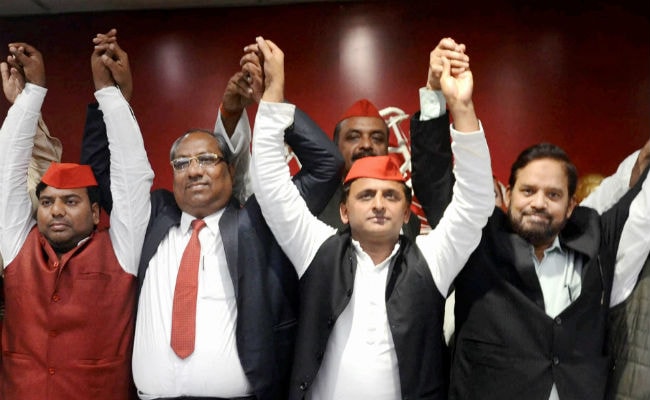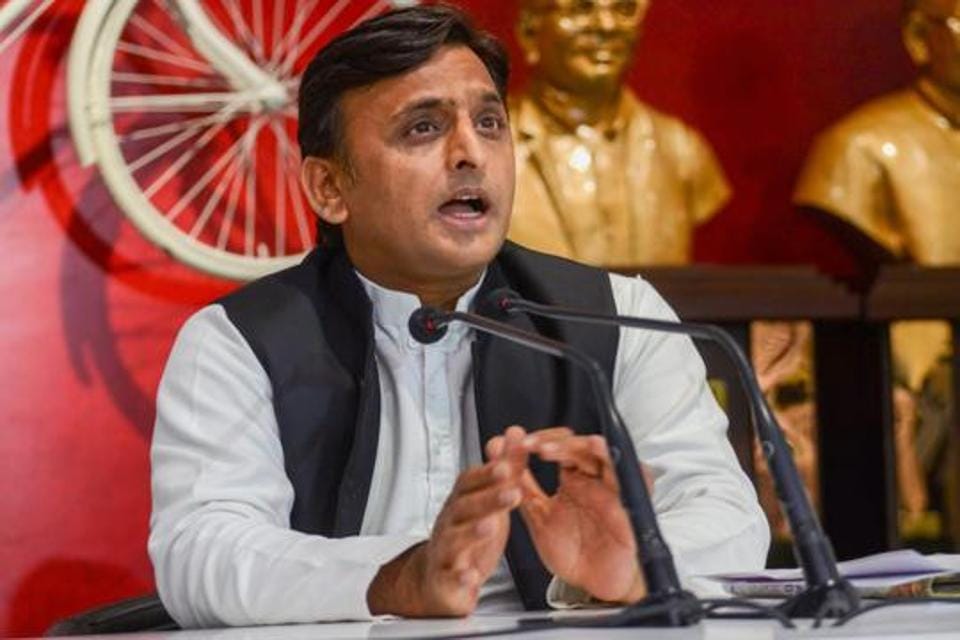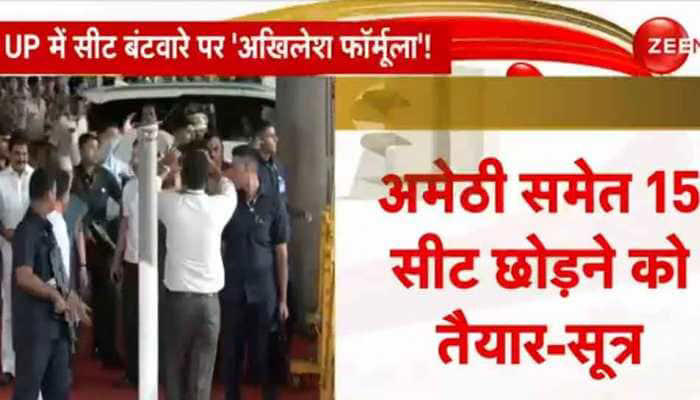Samajwadi Party To Contest On 65 Lok Sabha Seats In UP, Ready To Give 15 To INDIA Bloc: Sources
Samajwadi Party To Contest On 65 Lok Sabha Seats In UP, Ready To Give 15 To INDIA Bloc: Sources
The reported decision by the Samajwadi Party (SP) to contest a significant majority of the Lok Sabha seats in the upcoming 2024 elections in Uttar Pradesh reflects the party’s strategic approach to electoral alliances and its ambitions for political representation in the state. By indicating a willingness to contest 65 out of the 80 seats in the state, the SP is signaling its confidence in its electoral prospects and its commitment to a more assertive presence in the national political landscape.
The notable step of leaving 15 seats, including the prominent Amethi constituency, for its INDIA alliance partners, is indicative of the SP’s efforts to foster a collaborative approach to political representation and to strengthen its relationship with its alliance partners. By making such a gesture, the party aims to demonstrate its commitment to a unified opposition front and to enhance the broader coalition’s chances of success in the upcoming elections.
Former Uttar Pradesh chief minister Akhilesh Yadav’s statement at a party meeting underlines the SP’s preparedness to adapt its electoral strategy in accordance with its alliance agreements. This move suggests a willingness to accommodate the interests and aspirations of its partners while also emphasizing the party’s determination to play a prominent role in shaping the political landscape of Uttar Pradesh.
As the political dynamics continue to evolve in the lead-up to the 2024 Lok Sabha elections, the SP’s decision to forge strategic alliances and to recalibrate its electoral approach underscores the significance of coalition building and collaborative efforts in the pursuit of political objectives.

The formation of the Indian National Developmental Inclusive Alliance (INDIA) as a formidable opposition front comprising leaders from 28 diverse political parties represents a significant effort to challenge the dominance of the ruling Bharatiya Janata Party (BJP) in the upcoming 2024 Lok Sabha elections. The collective strength of this alliance, consisting of various regional and national parties, underscores the shared objective of consolidating efforts and resources to offer a credible alternative to the current political dispensation.
Within the context of Uttar Pradesh, the INDIA alliance is anchored by four key constituents: the Samajwadi Party (SP), Congress, Rashtriya Lok Dal (RLD), and Apna Dal (K). This coalition signifies a concerted attempt to forge a united front capable of effectively countering the BJP’s influence and electoral prowess in the state.

Akhilesh Yadav’s confidence in the SP’s ability to confront the BJP independently in Uttar Pradesh reflects the party’s unwavering commitment to its political agenda and its belief in its organizational strength and electoral potential. His assertion that the SP would have secured victory in the 2022 Uttar Pradesh Assembly polls in the absence of electoral irregularities underscores the party’s assertion of electoral competitiveness and its aspiration to assume a leading role in state governance.
By urging SP leaders and workers to align with the directives and policies outlined by the national leadership, Akhilesh Yadav emphasizes the importance of unity and coherence within the party. This call to prioritize organizational cohesion and grassroots empowerment underlines the significance of a unified and focused approach in achieving the party’s political objectives. Emphasizing the need to avoid internal factionalism, Yadav aims to foster a sense of solidarity and collective purpose among party members, ultimately strengthening the SP’s organizational structure and mobilization capabilities at the grassroots level.
The recent revelation of tensions within the INDIA alliance, specifically between the Samajwadi Party (SP) and the Congress, highlights the complexities of coalition politics and the challenges associated with seat-sharing arrangements. Akhilesh Yadav’s disclosure of the SP’s request for only six seats from the Congress in Madhya Pradesh, given the party’s stronger position in the state, underscores the SP’s efforts to establish a mutually beneficial arrangement within the alliance.
However, the Congress’s decision to field a candidate even on a seat that the SP had previously won in the 2018 polls points to potential discrepancies in the understanding and implementation of the seat-sharing agreement between the alliance partners. This move appears to have triggered heightened tensions and disagreements within the alliance, leading to a sense of perceived betrayal and dissatisfaction on the part of the SP.
The subsequent escalation of tensions, resulting in the SP’s decision to field candidates for 40 seats in Madhya Pradesh, signifies the party’s resolve to assert its political standing and interests within the state. By contesting a significant number of seats independently, the SP aims to reinforce its electoral presence and convey its determination to secure a substantive role in the political landscape of Madhya Pradesh.
The episode highlights the intricacies and challenges associated with maintaining a cohesive and cooperative alliance, particularly when addressing issues related to seat distribution and electoral representation. While such disagreements may temporarily strain the relationship between alliance partners, fostering open communication, mutual understanding, and respect for each other’s interests and aspirations can be instrumental in mitigating conflicts and strengthening the long-term viability of the alliance.





